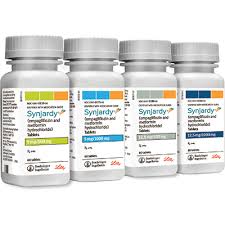 Synjardy controls blood-sugar levels by increasing the amount of sugar excreted by the kidneys in urine. However, because kidney failure is a potential side effect, Synjardy should not be used by people with kidney problems.
Synjardy controls blood-sugar levels by increasing the amount of sugar excreted by the kidneys in urine. However, because kidney failure is a potential side effect, Synjardy should not be used by people with kidney problems.
Need a Texas Synjardy Lawyer? Collen A. Clark is a true advocate for his clients and is passionate about helping Texans that have been injured or wronged. If you or a loved one was diagnosed with kidney failure or ketoacidosis, you should contact our lawyers immediately. You may be entitled to compensation by filing a lawsuit.
Diabetes and Kidney Problems
Uncontrolled diabetes can cause kidney failure. Over many years, excess sugar in the bloodstream damages delicate structures inside the kidneys that filter the blood. This is called diabetic nephropathy. Kidney failure occurs when 85-90% of kidney function is lost.
Synjardy and Kidney Failure
Synjardy forces the kidneys to remove glucose (sugar) from the body in urine. It relies on the kidneys to work and some experts are concerned about kidney side effects. However, because it is a new drug, the long-term risks are unknown. Experts do know that infections and dehydration are two of the most common side effects of Synjardy, and both can lead to kidney failure.
Synjardy and Dehydration
Dehydration occurs when the body loses too much water and salt. Because Synjardy is a diuretic that substantially increases urination, patients who do not drink enough water can become dehydrated. When less fluid is in the body, blood pressure and blood-volume drops, which impairs kidney function. Severe dehydration can cause kidney failure.
FDA Updates Synjardy Label to Include Kidney Infections
In December 2015, the FDA issued a warning about serious urinary tract infections that spread to the kidneys and cause kidney failure. The label on Synjardy has been updated to include kidney infections, also known as pyelonephritis.
Infections and Kidney Failure
Bacterial infections can cause permanent scarring in the kidneys and decrease their ability to filter the blood, resulting in chronic kidney disease (CKD). Infections that spread to the bloodstream (called “sepsis”) can also cause a sudden drop in blood pressure that cuts off circulation to the kidneys, resulting in acute kidney failure.
Can I Use Synjardy If I Have Kidney Problems?
Synjardy should not be used by people with kidney problems, according to the Prescribing Information (PDF). Patients without kidney problems should still have their kidney function tested before starting Synjardy and periodically thereafter. Patients at risk of developing kidney problems (especially the elderly) should have kidney function tested more often.
Symptoms
The early stages of kidney disease do not usually cause symptoms. However, as the kidney lose their ability to clean the blood, toxins build up in the body and cause symptoms, such as:
- Fatigue
- Generally feeling sick all the time (malaise)
- Loss of appetite
- Headache
- Itchy or dry skin
- Nausea or vomiting
- Swelling of the arms and legs (edema)
- Confusion
- Trouble sleeping
- And more
Kidney Failure Lawsuits
Synjardy belongs to a class of drugs called SGLT2 inhibitors. Lawsuits have already been filed by people who took drugs in this class and developed kidney failure, such as Invokana. They accuse drug-makers of downplaying side effects and selling unsafe medications. Click here to read more.
Need a Synjardy Lawyer in Texas?
Collen A. Clark is a true advocate for his clients and is passionate about helping Texans that have been injured or wronged.
Collen’s amazing success in the courtroom and well known dedication to his clients has earned him the recognition of his peers as one of The Top Trial Lawyers in Texas.”
The Clark Firm has assembled a team of trial lawyers with more than 100 years experience, participation in over 600 jury trials and $260 million in verdicts and/or settlements. Please use the form below to contact our Texas Synjardy lawyers for a free lawsuit review.


 To contact us for a free review of your potential case, please fill out the form below or call us toll free 24 hrs/day by dialing:
To contact us for a free review of your potential case, please fill out the form below or call us toll free 24 hrs/day by dialing: